As the coronavirus disease 2019 (COVID-19) is replacing most activities online, companies’ recruitment methods have also been facing huge changes. This year, numerous companies such as GS Retail have started to introduce Artificial Intelligence (AI) interviews to their recruitment process. AI job interviews are becoming a hot topic in-and-outside the job market as their popularity grows, and controversies about whether the new technology has the authority to judge humans are increasing. Therefore, the Sungkyun Times (SKT) would like to find out what an AI job interview is, the process involved, its push and pull factors, and the potential use of AI job interviews in the future.
The Definition and History of the AI Job Interview
An AI job interview refers to an interview method where an AI program judges an applicant’s personality and capability through aspects such as their facial expressions, voice tones, and word choices. It commonly uses the V4 technology, which includes visual, voice, verbal, and vital analyses, to check a person’s appearance, impressions, and habitual behaviors. An appearance evaluation is not meant to judge the level of appearance but is designed to check if the interviewees have not changed during an interview. Also, the use of an impression evaluation is used to find out whether the interviewee shows proper facial expressions, and habitual behaviors are evaluated to analyze an applicant’s unconscious non-verbal behaviors. Amazon first introduced AI to recruitment in 2014, by developing a system that examines applicants’ resumes. The very first AI job interview software was ShaiN, which was created by a Japanese consulting company “Talent and Assessment” in 2017. A year later, a South Korean company, Midas IT, developed inAIR, which is the Korea’s first AI-powered interviewer, and it currently has the highest dominance of 90% on the South Korean AI interview software market. By the 2nd half of 2021, over 600 South Korean companies and public institutions have chosen AI job interviewers, including LG Electronics, Shinhan Bank, and Incheon Airport. Since only 440 companies had chosen AI job interviews in 2020, it seems that the pandemic’s consistency is greatly increasing its use.
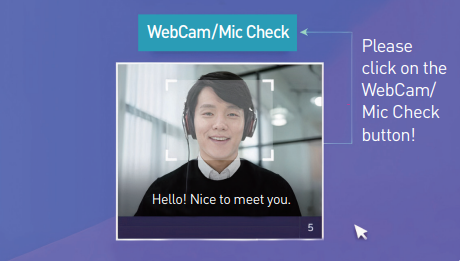
Steps of AI Job Interview
The basic process of an AI job interview differs by its service, but it mostly includes steps of registration, basic and in-depth interviewing tendency analysis, situational coping, reward preferences, and games. For instance, inAIR is composed of three stages: a tendency check, a strategic game, and questions and answers (Q&A). The whole process is about answering AI’s questions and completing the given tasks for about an hour. Unlike in traditional interviews, applicants start with registering their face and voice, regardless of their location. At the tendency check session, every applicant is given the same question and should answer the choice that represents him or her best. At the strategic game session, applicants should solve 10 mini-games such as memorizing a shape’s location and matching card patterns. This helps to find out the applicant’s brain functions, behavioral patterns, and decision-making process. Finally, at the Q&A session, the applicants must answer the questions for about 60 to 70 seconds. The AI examines the applicant’s external expressions such as their voice and facial expressions through a webcam and microphone. An AI job interview hugely differs from traditional interviews as applicants get to interact with the software instead of a human interviewee, and answer the questions by watching their face on the screen. Various perspectives regarding AI job interviews exist as it was officially introduced to Korea.
Push and Pull Factors of AI Job Interviews Reasons
Why AI Job Interviews Are Needed
➊ Reducing Cost and Time
In traditional job interviews, the applicants have face-to-face interactions with an interviewer. Various costs are incurred in the process such as reserving interview locations and recruiting staff. Therefore, an AI interviewer could be an effective tool for companies to reduce costs. When Midas IT held its open recruitment with an AI interviewer for the first time in 2017, it saved around 2.7 billion won compared to the previous year. Moreover, after introducing inAIR, which carries out simple and repetitive tasks, SsangYong Motors was able to reduce its recruitment staff to two. Thus, from the perspective of companies, the cost reduction aspect is greatly emphasized. Besides, AI interviewers are effective in temporal aspects. Viewinter HR, an AI job interview program developed by Genesis Lab, was able to reduce the processing time by 2,400 hours when AI verified more than 40% among 2,000 subjects. This would allow the company to focus more on other fields efficiently as the workload involved in an interview is reduced. Furthermore, an AI job interview reduces the applicant’s inefficient travel costs and time as they are allowed to take interviews at their desired location as long as there is a stable internet connection.
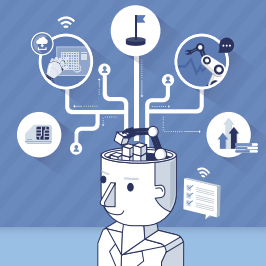
➋ Preventing Human Error
Traditional face-to-face interviews have also experienced difficulties in excluding interview biases. However, with the introduction of AI, spontaneous and unnecessary questions from human interviewers could be prevented. According to job-hunting portal Saramin, among 1,578 job seekers in 2020, 39% of them stated that they experienced unfairness according to the interviewer’s taste. The majority answered “questions irrelevant to the job such as asking about family relations and marital status” and “proceeding as if there is already a nominated person” were unfair. An AI program could rectify these human errors as their evaluation is solely based on the algorithm that studies the company’s ideal candidate. It means that spontaneous and subjective elements could be excluded during and after the interview. In addition, the program would precisely analyze problem-solving skills such as creativity and cognitive ability through strategic games based on neuroscience data. Also, instead of too simple results like pass or failure, an AI interviewer holds subspecialized evaluation items such as excellent, recommend, and failure. These evaluation items can give appraisers a chance to review applicants one more time based on the primary evaluation. As a result, AI job interviews can strengthen efficiency by giving interviewers one more chance to review, and companies can also gain a foothold of fair evaluation.
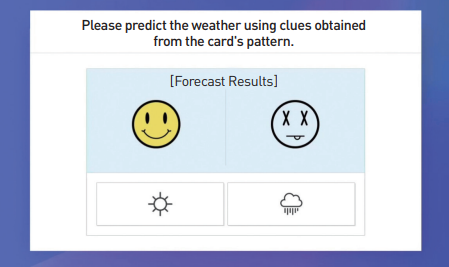
Controversial Issues of AI Job Interviews
➊ Are They Technically Reliable?
Even with the various benefits, controversies regarding AI job interviews still exist. Typically, its technical limitations are becoming serious problems. In fact, inAIR, which is widely used, only analyzes the outward responses instead of the content of the answers. JOBFLEX, a platform that helps understanding inAIR, notices that the answer contents do not affect the interview result through their platform. However, this fact is not announced to applicants during the interview, where interviewers put extra effort to prepare answers. In 2020, the Hankyoreh 21 found out that Midas IT could not develop two of the V4 techniques: verbal analysis, which analyzes an applicant’s answer contents, and vital analysis, which detects the emotional state of the interview through the change of face temperature. The absence of the verbal technique implicates that an AI interview does not reflect the answer content but uses expressions and attitudes as the standards to evaluate a person. According to Hankyoreh 21, recruitment managers mentioned that they invested additional time in analyzing interview videos since the AI could not filter irrelevant answers. This indicates an ironic situation since the company wanted efficiency in the first place when using AI. Moreover, doubts whether the algorithms themselves are fairer than a human also exist. For example, Amazon abolished the AI resume evaluation system in 2018 because the man-favored algorithm gave disadvantages to women applicants since Amazon was a male-dominated company, and the AI was also educated in line with this.
➋ Aggravated Pressure for Applicants
Even though AI job interviews can decrease cost and time for companies, they can still increase the applicants’ burden of preparation. AI job interviews still have complementary characteristics of the recruiting process, which means all recruiting processes are not replaced by them. Therefore, the burden is aggravated to applicants because they must prepare both AI interviews and offline interviews. Applicants could also face problems such as a lack of interview equipment and an unstable internet connection. According to Job Korea’s investigation, 539 job seekers in September 2021 spent 480,000 won on average to prepare for online interviews. Thus, there is criticism that companies are placing the cost to individual applicants. Besides this, improper response to errors during the interviews occurs continuously. Two years ago in 2019, the Korea International Cooperation Agency (KOICA) rejected an interview despite connection error. KOICA announced that they did not give the applicant a second chance or additional actions due to the fairness problem. Some people argue that AI interviews are beneficial for job seekers, but ironically from a job seeker’s perspective, the financial and psychological burden increases.
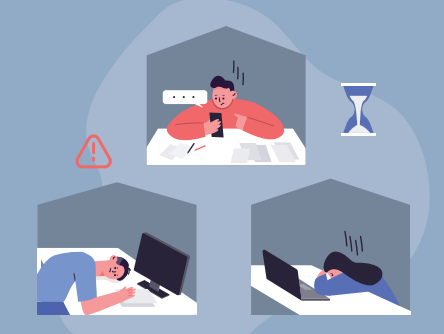
For a Better Future of AI Job Interviews
Can the Problems of AI Job Interviews Be Solved?
It seems that the phenomenon of AI evaluating humans will hardly disappear since AI replenishes its function in our efficiency maximized society. Therefore, problems that can be improved should be solved, and this requires attention from companies and the government. First, AI should retain all the V4 analysis techniques, which can evaluate the content of answers. Just like the AI that analyzes self-introduction letters, AI job interviews should analyze keywords that are related to the job and reflects interviewees’ answers in the evaluation. Also, solutions to technical problems during the AI interviews should be prepared. Epeople, which is an online communication channel that handles civil complaints about the government, took the case of KOICA and announced that a fair examination process and the system should be provided by KOICA, not by applicants. However, KOICA covered up the incident without additional response or apology. To avoid cases like the KOICA, disadvantages from technical defects should be prevented by describing countermeasures against errors of AI job interviews and establishing the firm’s autonomous rules.
Prospects for AI Job Interviews
The competition of the AI recruitment solution market has now intensified along with its popularity. In the beginning, Midas IT almost monopolized the AI recruitment solution market. However, due to the extension of the AI recruitment market, private companies like Genesis Lab, Bluevisor, and Educe are expanding their customers. It is expected that rather than monopolization, several companies can participate in proper competition. As AI can filter suitable people for each company, companies can hire appropriate people who match the ideal of a company. It implies that AI job interviews will not end as a brief trend. Job Korea, an employment platform, investigated 1,427 job seekers about their preference for ways of interviews during COVID-19, and 55.2% of them preferred online interviews. If the limitations on AI job interviews are solved, a positive prospect is expected for both companies and applicants.
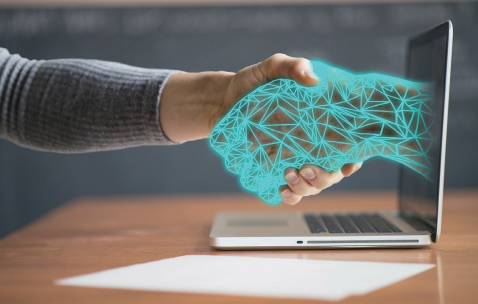
AI is rapidly taking its place in all fields of our lives. It even contributes to the evaluation of people’s expressions and attitudes to determine the result of employment. However, the AI job interview has complementary characteristics for now, so there should be various developments to be a fairer evaluator. On condition that the overall process of the interview is properly prepared, the AI job interview will be an advanced type of interview method with a solid foundation.
